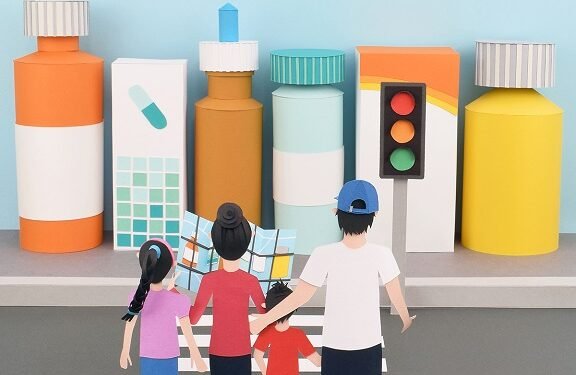Giving kids medicine safely can be complicated, many parents feel the pressure when a young child needs medicine, knowing that giving too much or less could cause serious side effects. Always checking with a doctor or health practitioner to be sure when a medicine is needed or not is very important and necessary.
Types of medicine for kids
- Liquid- The active part of the medicine is combined with a liquid to make it easier to take or better absorbed.
- Drops – They tend to be used directly on the affected part of the body like the ear, eye, or nose.
- Suppositories- They are the type of drugs inserted in the buttons and must not be swallowed.
- Tablet- The active ingredient is combined with another substance and pressed into solid shapes.
- Capsule- The active part of the medicine is contained inside a plastic shell that dissolves slowly in the stomach.
- Tropical medicine- These are creams, lotions, or ointments applied directly onto the skin.
- Inhaler- The medicine is released under pressure directly into the lung, young children may need to use spacers to take the medicine properly.
- Injection- They are usually in a liquid form, given in the hospital
Things you need to know when giving a child medicine
- The name and purposes of the medicine
- Whether the child has an allergy
- How the medicine should be taken
- The dosage, how often, and how long the medication should be administered.
- Any special requirement eg if the drugs should be taken with or without food. Also, whether it should be taken before or after food.
- How the medicine should be stored
- How long the medicine can be stored safely before disposal
- Common side effects and reactions
- Interaction with other medicine the child takes
- What happens when a dose is skipped
Tips to help kids take medicine
- Some kids prefer it if the medicine is chilled, however, it is important to check with your pharmacist or doctor to know the type of drugs that can be refrigerated.
- Mixing the medicine with small amounts of liquid or soft food. You use small amounts and make sure your child eats it to get the complete dose of the medicine
- If your child has no allergy to food colour and sweeteners, you can offer flavouring like chocolate, cherry, grapes, bubble gum to subside the odour of the drugs especially antibiotics.
Side effects of medicine
After giving a child a dose of medicine, you should look out for side effects such as drowsiness or hyperactivity, or allergic reactions. Side effects are usually included in a medicine package alternatively, you can ask your doctor or pharmacist.
If a child has side effects such as a rash, hives, vomiting, or diarrhea contact your doctor. Penicillin and other antibiotics are among the most common prescription drugs that cause such allergic reactions.
If a child develops wheezing, has trouble breathing, or difficulty, swallowing after taking medication, please seek emergency help immediately by rushing the child to the hospital.
Those symptoms are serious allergic reactions that require emergency care.
- Read also; Back Pain: Understanding back pains and health tips.
- Blood pressure: Hypertension, causes and control
How to store medicine
Read the medicine’s instructions, some drugs need to be refrigerated but, most should be stored in a cool, dry place away from direct sunlight.
Above the kitchen cabinets are great spots to store medicine provided they are away from the stove, sinks, and all other hot appliances.
The bathroom medicine cabinet is a poor choice for storing most medicines because of the humidity and moisture from the tub or shower.
Child resistance caps can be hard at times even for adults to open, protect kids by relocking and recapping child resistance bottles properly. It is important to lock all drugs away from the reach of children.
NOTE- Not all medicine is bitter so never call medicine candy to try to get a child to take it, this can rebound and a child could accidentally overdose by taking dangerous medicines, thinking it is a taste treat. Instead, explain that medication can make them get well and feel better but should always be taken with you or another caregiver supervision. If a child spits out or vomits medicine, do not give another dose consult your doctor.
By; Peace Chigozie






















































